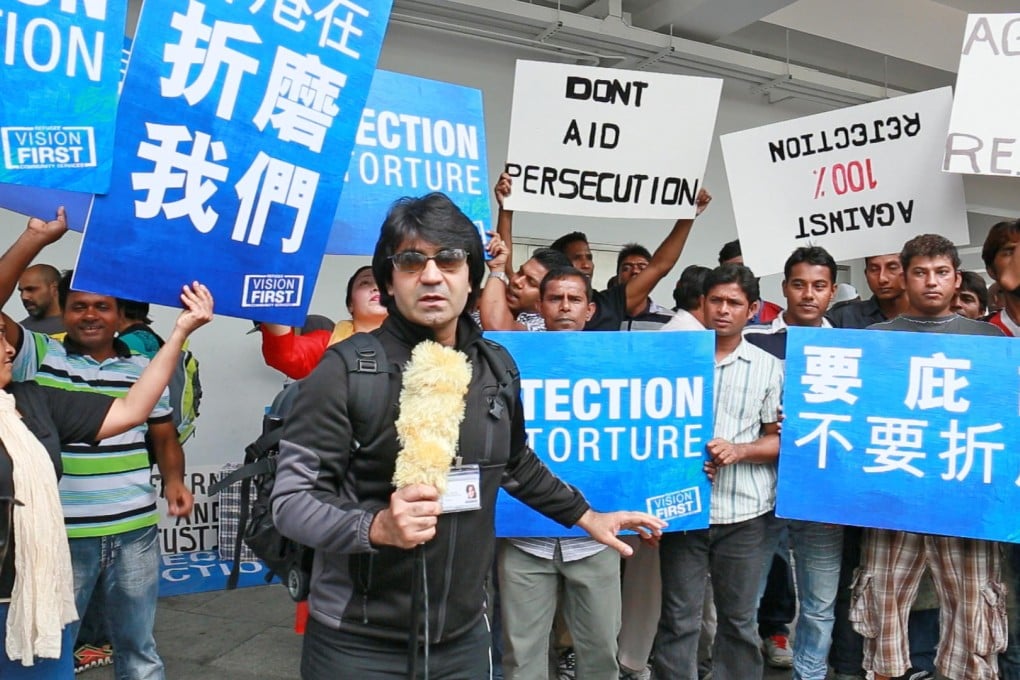Filmmakers focus on the plight of Hong Kong’s asylum seekers
Asylum seekers looking for refuge in Hong Kong face a grim wait while their fate is determined. Two filmmakers aim to curb the influx by highlighting the risks of coming, writes Charley Lanyon

Vision First, an NGO dealing with refugee issues, presents daunting statistics: of the 12,409 people who sought asylum in Hong Kong in the past 21 years, just four succeeded. Despite such enormous odds, about 800 people still flock to the city seeking refuge each year - and that's excluding 1,200 others who claim to have been tortured in their home countries.
Now two Pakistani residents, Uzair Sipra and his business partner Kashif Akhtar, hope to slow the flow by producing a film that reveals the true plight of asylum seekers living in Hong Kong.

What sets apart from other efforts - along with the vignettes - is its intended audience. While previous films aimed to raise Hongkongers' awareness about refugee issues, Sipra and Akhtar want to tackle the problem at its source. The idea is to give potential asylum seekers an idea of the harsh realities of life here before they abandon their homes for what may well turn out to be a grimmer future. Because the vast majority of asylum seekers come from countries such as Pakistan, India and Bangladesh, the producers have made a film to appeal to South Asian sensibilities - it thrills as well as educates.
The dire straits that asylum seekers find themselves in in Hong Kong is a far cry from the future many envisage when they leave their native countries.
While their claims are being evaluated - a process that typically takes four to five years and sometimes as long as a decade - they receive a tiny government allowance administered by an NGO, the International Social Service Hong Kong branch (ISS-HK). Each person gets HK$1,200 a month for accommodation, about HK$1,000 worth of groceries and a small travel stipend to attend interviews or appointments. This barely covers the rent for the tiny, cramped spaces that they must live in. And because government rules forbid them from working, it's a constant struggle to keep their heads above water. Quite a few end up working illegally, risking imprisonment if they are caught.
